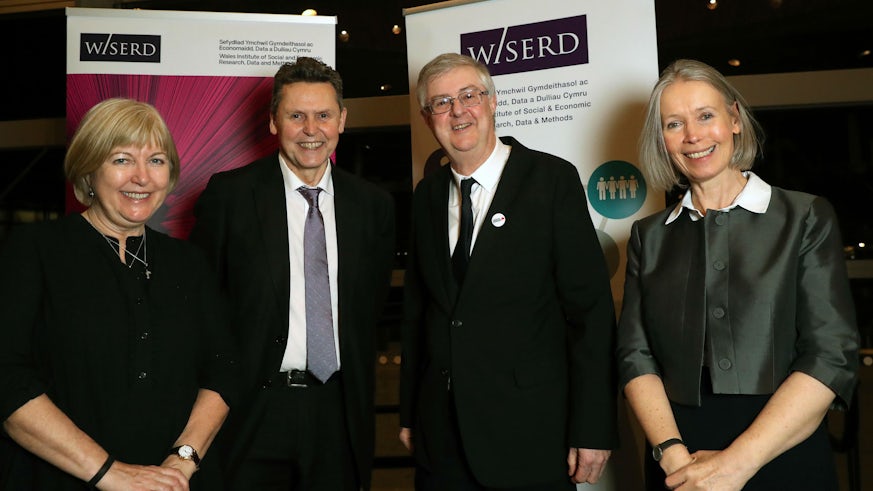National research centre launches plan for the next five years
2 March 2020

The Wales Institute of Social and Economic Research and Data (WISERD) has launched its five-year plan for civil society research.
Academics at Cardiff University are among those who will explore social and economic inequality, migration and multiculturalism, the foundational economy, the changing dynamics of work, animal rights and Artificial Intelligence.
The new Civil Society Centre is the result of £6.3m funding from the Economic and Social Research Council (ESRC), part of UK Research and Innovation.
At a recent launch event at the Senedd, First Minister of Wales, Mark Drakeford said: “WISERD’s success is testament to its collaborative approach with universities and charities across Wales, Europe and the world. Facts have never been more important, and having a world-class knowledge hub helping us in Government to make the right decisions, will help us build a better Wales for us, and for our future generations.”
A number of interdisciplinary research projects will be conducted under four themes:
Frontiers of Civic Exclusion and Expansion will explore civil society in relation to identity; borders and migration; children and young people’s rights; and human and nonhuman relations.
Polarization, Austerity and Civic Deficit will look at accessibility to public spaces and resources; power relations and how systems of patronage afford access to elite positions; how populist politics are fostered; and the mixed economies of welfare that exist in the UK and beyond.
Contentious Politics of Civic Gain focuses on the role of citizens and experts in debates about science and the environment; the marketisation of social justice in the energy transition; shifting forms of governance and separatism; and the changing role of women in work and society.
Material Resources, Social Innovations and Civil Repair considers place-based strategies for sustainable development, the foundational economy, and the significance of the gig economy within local labour markets.
The newly established WISERD Education Data Lab will also be developed over the next five years. It will help to support the Wales education sector meet the aims of Education in Wales: Our national mission – the Welsh Government’s action plan for 2017-2021.
As the only university-based data lab in the UK, the WISERD Education Data Lab will bring together all administrative data on children in school and link this to other data sources, such as government agencies and external organisations. This will allow education researchers to perform advanced analyses into areas such as pupil and school performance, impact of GCSE early entry, and patterns and predictors of school exclusions.
Professor Ian Rees Jones, Civil Society Centre Director, based in Cardiff University’s School of Social Sciences said: “I am delighted we have been awarded further funding from a highly competitive programme. The research will allow us to address the ways in which citizenship and associated rights are sites of change and contention in a rapidly changing world.

It is a golden opportunity for WISERD to grow as a creative centre and home to international research leaders, and to deliver ground-breaking interdisciplinary research based on a culture of freedom of thought and ideas.
Professor Sally Power, WISERD Director and based in Cardiff University’s School of Social Sciences said: “This event recognises a magnificent achievement by my colleagues and a tremendous amount of support and participation from our stakeholders, for which we are very grateful.
“We are particularly grateful to Mark Drakeford AM, First Minister of Wales, for hosting and speaking at this event. We would also like to thank Alison Park, Director of Research at the Economic and Social Research Council, not only for joining us to celebrate our work, but also for her contribution to ensuring the Council continues to support excellent, independent and impactful social science.”
WISERD is a collaboration of five Welsh universities (Aberystwyth, Bangor, Cardiff, South Wales and Swansea). The new research programme will also involve co-investigators across UK universities and in Europe, with international collaborators in Australia, China, India and the USA.
The support of the Economic and Social Research Council (ESRC) which is part of UK Research and Innovation is gratefully acknowledged.
Share this story
The School is an internationally recognised centre of high quality teaching and research.





